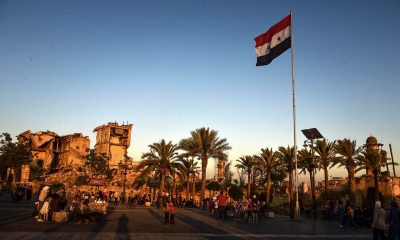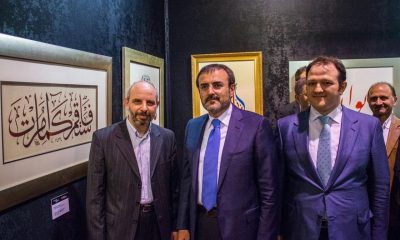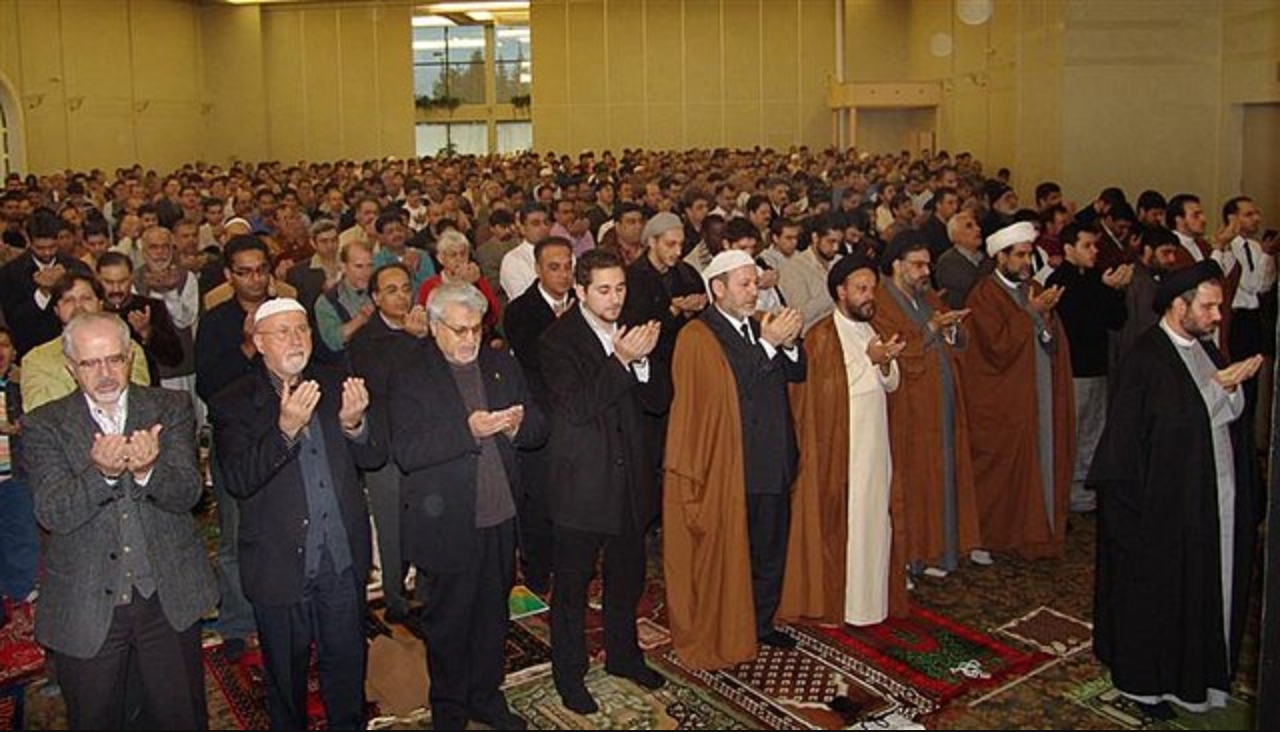The victory of the Iranian Islamic Revolution led to a resurgence of Islam on the international stage, prompting Western scholars to acknowledge the power of Islam.
Samuel Huntington, a prominent American theorist, believes that “Islamic civilization forms a unified ideological bloc and compels the West to abandon its claim of universality.” Western powers are concerned about the spread of Shia ideological thinking and the dominance of Shia in the world. Simultaneously, they are worried about the questioning of their own humanistic ideals, which could undermine their global dominance. This contradiction has become a significant factor in the conflict and divergence between Shia and the West. The Western opposition to Shia is rooted in both ideological and geopolitical considerations, and these factors have contributed to the ongoing tensions between Shia-majority countries and Western powers.
Here should notice some Strategies of West to Confront Shia Islam: Since the strategic arena of political Islam revolves around Iran, any developments in Islamic regions are related to Iran and result in new policies toward Iran. The U.S. foreign policy toward Iran has employed three strategies in recent decades: regime change, isolating Iran internationally, and integrating Iran into the American global system. The creation of fear about the Islamic Republic of Iran has been one of the West’s tactics to counter the Islamic Revolution. They aim to weaken Iran’s international position by spreading fear about Iran among governments and people worldwide.
”New Middle East” Initially proposed by Israel’s Deputy Prime Minister Shimon Peres, the plan gained more momentum over time. Condoleezza Rice, during her trip to Asia and witnessing the failure of the Greater Middle East Initiative, interpreted the developments in Iraq and Lebanon as the birth of a new Middle East. The United States initially attempted to prevent the formation of a Hamas government but failed. Subsequently, it sought to create divisions among Palestinian groups. In Lebanon, the U.S. aimed to weaken Hezbollah by disarming it. In Syria, Bashar al-Assad was pressured through accusations of meddling in Lebanon and Iraq. However, these plans encountered resistance and turmoil, leading to further instability in these countries.
One of the Pentagon’s plans within the framework of the New Middle East is the “Balkanization” plan, aiming to divide countries, particularly Shia-majority nations.
This plan became more prominent after the gradual defeat of ISIS in Iraq and Syria. By creating unrest in Shia-majority countries, Western powers hope to provide opportunities for intervention and exploitation of resources in these societies. This plan, too, has faced significant challenges and setbacks.
After the Lebanon War and the failure of the United States and its allies to achieve their goals through war, they attempted to unite friendly and allied countries under a new security system based on the alliance of the United States, Israel, and Arab-affiliated regimes to confront Islamic resistance and awakening led by Iran. In this way, America aimed to create a new power pole in the region to counter the Islamic resistance, and it used Shiaophobia and fear of Iran as tools to achieve this goal. By instigating Shiaophobia and Iranophobia in the region, the United States sought to portray Shia Muslims as a serious threat to some Arab governments. They tried to convey that Shia Muslims, under Iran’s leadership, could become a regional power. Some Arab leaders, who lack popular support in their own countries and rely on external powers to maintain their rule, aligned with the West in implementing Shiaophobia tactics. Among these tactics, Wahhabism and Salafism played a significant role by resorting to brutal violence and ruthless killings of Shia Muslims in various regions, intensifying their enmity and fear towards Shia communities. Wahhabi scholars issued hostile fatwas, further fanning the flames of hostility. For instance, Sheikh Bin Baz, the Saudi Arabian Grand Mufti, believed that “Shia Islam is a different and separate religion from Islam, and just as reconciliation between Sunnis and Jews, Christians, and idolaters is impossible, so is reconciliation between Shia or Rafidis and Sunnis.” These actions were part of a broader strategy to create religious divisions and sectarian tensions in the region, weakening the unity and strength of Muslims and serving the interests of external powers.
Countermeasures Against Western Threats
Accurate Introduction of Islam to the World: Islam is a divine and natural religion, and unlike other religions, its heavenly book remains unaltered. Despite the existence of various sects and deviant ideologies within the Muslim community, true Islam exists in the world. To combat Western threats, it’s crucial to properly introduce Islam to the world. The Islamic Republic of Iran can utilize its media resources and dispatch missionaries to different parts of the world to present true Islam to humanity. This includes explaining the goals and foundations of the Islamic religion, the objectives of the Islamic Revolution in Iran, and analyzing the reasons for its contradictions with Western ideologies. This educational effort should include an understanding of Western humanism and all aspects of science, technology, modern structures, welfare, and other elements that can illuminate the true nature of the West to the people.
Introduction of the West and the Roots of Humanist Ideology: Western philosophical and social foundations, based on humanism and secularism, are fragile. Western individuals, estranged from religion and God, have shaped their economic, political, cultural, and moral affairs based on humanism, leading to decadence and collapse. In contrast, Shia Islam is based on monotheism and belief in divine law, positioned for future global order, provided with divine assistance. It is essential to inform the world about the commonalities among Islamic nations and raise awareness among Muslims about the goals and conspiracies of Western powers to create divisions. This should include exposing the influence of Zionist thinking on Protestantism, the basis for Western secular and humanist ideologies that underlie many of the United States’ actions.
Emphasize Islamic Human Rights and Condemn Western Inhumane Actions: The Quran clearly addresses human rights. Islam recognizes human rights as stemming from the intrinsic value and dignity of humanity and considers all humans equal regardless of their race, ethnicity, or language. The Islamic Republic of Iran should highlight Islamic human rights, condemn Western inhumane actions in their treatment of people, and expose these actions to the global public. This includes the rights of minorities, children, women, prisoners, and the right to a healthy environment, which are often overlooked by Western powers. The Iranian government should expose the hypocrisy of Western claims about human rights and consider the defense of human rights as rooted in divine and religious teachings.
Active Iranian Presence in the Region and Unity Among Islamic Nations: To foster self-confidence and trust among Muslims, it’s crucial to emphasize commonalities within the Islamic world and raise awareness among Muslims in the region about the goals and conspiracies of Western enemies to create divisions. This should be a top priority for the Iranian government in its diplomatic relations with regional countries. Additionally, non-governmental organizations in the region can play a role in facilitating sincere dialogues between these communities to make them aware of the Western agenda and encourage collective action against cultural invasion. Imam Khomeini (RA) emphasized the importance of Muslim unity and saw the source of Muslim problems as being imposed by Western powers to exploit their resources. Utilizing media effectively at the national and international levels is also essential to combat Western threats.
Effective Use of Media at National and International Levels: Media is the most critical tool for countering organized Western movements. On a national level, media can guide public opinion, maintain and deepen Islamic and national values, and expose the public to Islamic and national values. On an international level, media can inform the world about the unity among Islamic nations, reveal Western efforts to create discord and encourage global reactions to cultural invasion. This includes the establishment of private networks to influence foreign audiences, alongside the success of international networks like Al-Alam and Press TV. Overall, media can be a powerful instrument to shape international perceptions positively and introduce the true face of Islam to the world.
By implementing these strategies, the Islamic Republic of Iran and Muslim communities worldwide can work to counter the various threats posed by Western powers and promote unity, awareness, and the true values of Islam.

 Islam12 months ago
Islam12 months ago
 Art & Culture12 months ago
Art & Culture12 months ago
 Islam12 months ago
Islam12 months ago
 Art & Culture12 months ago
Art & Culture12 months ago
 World news12 months ago
World news12 months ago
 Interview12 months ago
Interview12 months ago
 Art & Culture12 months ago
Art & Culture12 months ago
 Art & Culture12 months ago
Art & Culture12 months ago









